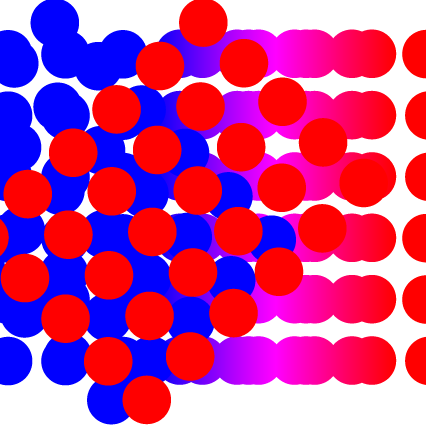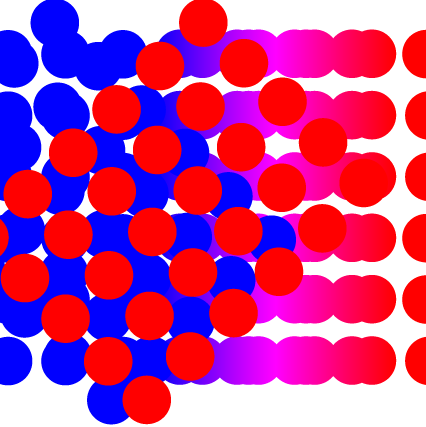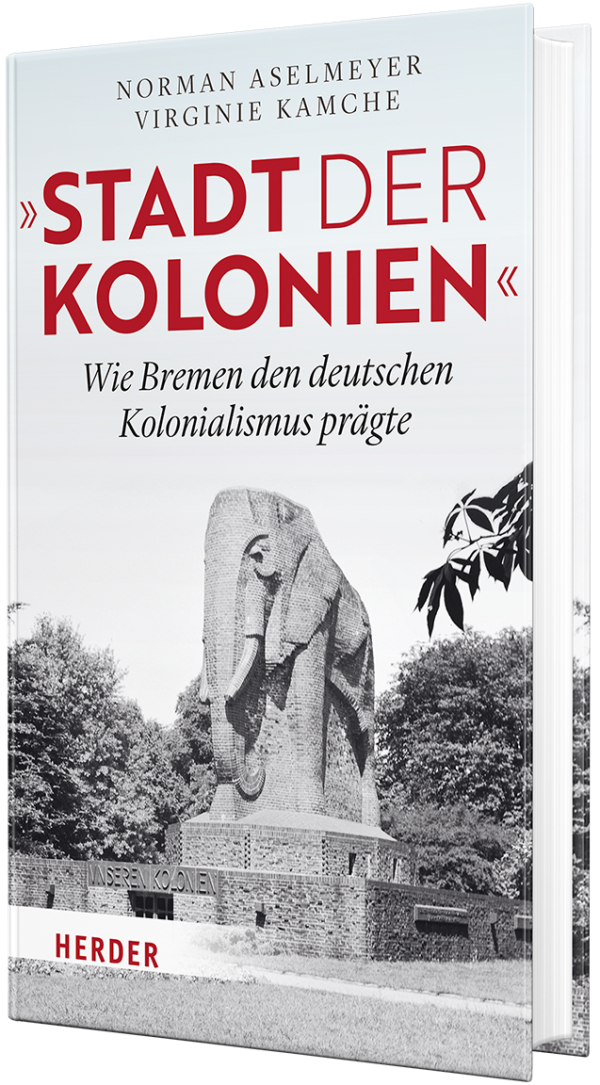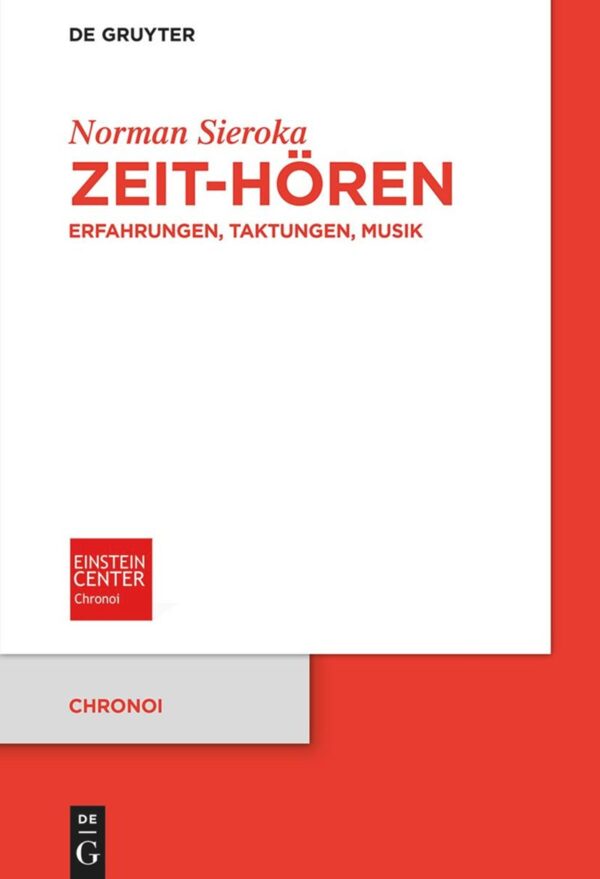Publikationen
-
 Cluttered Screens. An Eye-Tracking Study of Visual Attention Allocation Among Viewers of TV News
Cluttered Screens. An Eye-Tracking Study of Visual Attention Allocation Among Viewers of TV NewsContemporary television news programmes are often complex examples of hybrid communication. Television news presents related as well as unrelated information in both a linear and non-linear fashion by combining the news read with a variety of visual elements.
-
 Es ist eine Frage der Selbstverteidigung [Interview mit Ivan Kalmar] (20.03.2025)
Es ist eine Frage der Selbstverteidigung [Interview mit Ivan Kalmar] (20.03.2025)
-
 Disruptive und diskursive Ereignisse. Ein Vorschlag zur Ausdifferenzierung mit Beispielen aus dem feministischen Abtreibungsdiskurs Disruptive und diskursive Ereignisse
Disruptive und diskursive Ereignisse. Ein Vorschlag zur Ausdifferenzierung mit Beispielen aus dem feministischen Abtreibungsdiskurs Disruptive und diskursive EreignisseVor dem Hintergrund von Disruption werden in diesem Artikel geltende Konzepte von diskursivem Ereignis hinterfragt und miteinander in Beziehung gesetzt. Die davon abgeleiteten disruptiven Ereignisse werden als eine Subkategorie von diskursivem Ereignis verstanden. Am Beispiel des feministischen Abtreibungsdiskurses wird diesem Ansatz gefolgt und mittels einer Analyse von Praxen des […]
-
 Colonial Flashback im Museum. Was Missionsobjekte über kirchliche Erinnerungskultur erzählen
Colonial Flashback im Museum. Was Missionsobjekte über kirchliche Erinnerungskultur erzählenMissionssammlungen sind deutschlandweit materielles und ideologisches Kolonialerbe der Kirchen. Franziska Moosmann teilt Eindrücke ihrer Ausstellungsanalyse eines Missionsmuseums und lädt die Leser*innen auf einen Rundgang durch ausgewählte Räume ein. Dabei fragt sie, wie sich postkoloniale Theologie und Erinnerungskultur von den Objekten herausfordern und transformieren lassen müssen.
-
 Streit als Chance? Kommunikative Praktiken des Streits als Vehikel sozialer Aushandlung
Streit als Chance? Kommunikative Praktiken des Streits als Vehikel sozialer Aushandlung
-
 Paradoxien des Auditiven? Ambiguitäten und Diskrepanzen beim Hören und in der Musik
Paradoxien des Auditiven? Ambiguitäten und Diskrepanzen beim Hören und in der MusikIn der Psychologie der Musik und der auditorischen Grundlagenforschung wird von „Paradoxien des Hörens“ beziehungsweise „musikalischen Paradoxien“ gesprochen (Deutsch 1986, 275–280; Utz 2015, 22–52; Deutsch 1995). Aber können Höreindrücke wirklich paradox sein? Was sollte es genau heißen, „Paradoxien zu hören“ oder gar „paradox zu hören“? […]
-
 Transnational-wehrhafte Demokratie. Zu den Voraussetzungen eines Parteiverbotsverfahrens im Mehrebenensystem
Transnational-wehrhafte Demokratie. Zu den Voraussetzungen eines Parteiverbotsverfahrens im MehrebenensystemAm 13.11.2024 hat eine Gruppe aus 113 Abgeordneten des Deutschen Bundestags einen Antrag auf die Initiierung eines Parteiverbotsverfahrens gegenüber der „Alternative für Deutschland“ (AfD) eingebracht. Die bisherige Debatte konzentriert sich schwerpunktmäßig auf die Voraussetzungen und Erfolgsaussichten eines (Teil-)Verbots der Partei aus grundgesetzlicher Perspektive (insbesondere hier […]
-
 Die Überseestadt: Spiegel kolonialer Verhältnisse
Die Überseestadt: Spiegel kolonialer VerhältnisseDie Bremer Überseestadt, zwischen 1875 und 1913 als neuer Hafen errichtet, spiegelt die engen Verbindungen zwischen Hafeninfrastruktur und europäischem Kolonialismus wider. Der Anstieg des Warenumschlags, insbesondere von Kolonialwaren, führte zur Notwendigkeit neuer Hafenanlagen und zur Weserkorrektion. Trotz der Umwandlung in ein modernes Stadtviertel bleibt die […]
-
 Approche écoféministe de la protagoniste nordique dans Sauvagines de Gabrielle Filteau-Chiba
Approche écoféministe de la protagoniste nordique dans Sauvagines de Gabrielle Filteau-Chiba
-
 Die Zeit in ihrer Vielfalt denken – Anmerkungen aus philosophischer Perspektive
Die Zeit in ihrer Vielfalt denken – Anmerkungen aus philosophischer PerspektiveCorona-Infektionen, Kindheitserinnerungen, Präsidentschaftswahlen, Lawinenabgänge: Alles, was wir erfahren und erleben, und sämtliche äußeren Geschehnisse können zeitlich – gemäß ihrem Nacheinander – angeordnet werden. Zeit ist also ein Ordnungsparameter, oder eine Dimension, von Ereignissen. Was Zeit außerdem noch ist, darüber herrscht Uneinigkeit auf dem „Kampfplatz ewiger […]
-
 Staged Dissent – »Change My Mind« as a Vehicle of Instrumental Deliberation within the Identitäre Bewegung Österreich
Staged Dissent – »Change My Mind« as a Vehicle of Instrumental Deliberation within the Identitäre Bewegung ÖsterreichIn diesem Beitrag beabsichtigen Jonas Trochemowitz und Lara Herford, das Gesprächsformat Change my Mind von Steven Crowder und dessen Adaption durch den ehemaligen Sprecher der rechtsextremen Identitären Bewegung in Österreich zu analysieren. Anhand des Konzepts des ›Dissens-Genres‹ gehen wir der Frage nach, wie Werte eines deliberativen Demokratieverständnisses strategisch genutzt werden, um rechtsextreme Positionen im Diskurs zu legitimieren.
-
 Menaçante ou menacée? Mutations de la forêt nordique dans «Bivouac» de Gabrielle Filteau-Chiba
Menaçante ou menacée? Mutations de la forêt nordique dans «Bivouac» de Gabrielle Filteau-Chiba
-
 Zeit-Hören: Erfahrungen, Taktungen, Musik
Zeit-Hören: Erfahrungen, Taktungen, MusikObwohl es „die Zeit“ nicht gibt, ordnet sich doch alles, was wir erleben, zeitlich. Auch die großen Schlagworte unserer Tage betreffen allesamt von zeitlichen Herausforderungen: Nachhaltigkeit, Resilienz, Transformation, Zeitenwende. Dieses Buch handelt davon, was Zeitliches ausmacht, warum sich die Wirklichkeit zeitlich ordnet und was das […]
-
 Activismo y escritura activista negra en la literatura afroespañola: el caso de Moha Gerehou y de Desirée Bela-Lobedde
Activismo y escritura activista negra en la literatura afroespañola: el caso de Moha Gerehou y de Desirée Bela-Lobedde
-
 »Everything a Learner Needs« – Constructions Of Linguistic and Social Marginality/Centrality In Discourses about (German) Language Learning and Multilingualism
»Everything a Learner Needs« – Constructions Of Linguistic and Social Marginality/Centrality In Discourses about (German) Language Learning and MultilingualismDer Beitrag befasst sich mit diskursiven Darstellungen der Sprachaneignung und von Sprachenlernenden. Er untersucht in einer Kombination quantitativer und qualitativer Ansätze, ob der Status von Lernenden in aktuellen Diskursen als marginal oder zentral konstituiert wird und ob dies in einigen Belegen als Mimikry von Marginalität […]
-
 Paradoxien des Ein- und Ausschlusses. Bildung zu Nationalsozialismus und Holocaust in Integrationskursen
Paradoxien des Ein- und Ausschlusses. Bildung zu Nationalsozialismus und Holocaust in IntegrationskursenHistorical references to the Holocaust are ubiquitous in Germany’s contemporarypolitical and public discourse while the country’s ever-changing postmigrant societyposes new challenges to long-standing mnemonic practices. Since 2017, claims thatnewly arriving migrants should be educated in Holocaust history became audibleand eventually culminated in a revised curriculum for the integration courses.
-
 Présentation: Perspectives émergentes en études québécoises depuis l’étranger
Présentation: Perspectives émergentes en études québécoises depuis l’étranger
-
 Relationen. Das verknüpfende Glied zwischen Positionierung und Widersprechen. Eine Illustration anhand des feministischen Abtreibungsdiskurs
Relationen. Das verknüpfende Glied zwischen Positionierung und Widersprechen. Eine Illustration anhand des feministischen Abtreibungsdiskurs
-
 Decolonization Through Decolonial Reforming
Decolonization Through Decolonial ReformingThe need for reform of the global health system is openly on the table. Many stakeholders agree that the WHO has not been able to adequately address the political and social problems, global health emergencies triggered or exacerbated by epidemics and pandemics, malnutrition, and access to clean water in recent years. Against this backdrop, there is a widespread call for more equity and solidarity in the global health system.
-
 Book Review: Moise et la Terre Promise: le mythe et les imaginaires de l´Atlantique noir von Aurélia Mouzet
Book Review: Moise et la Terre Promise: le mythe et les imaginaires de l´Atlantique noir von Aurélia Mouzet